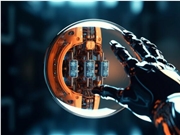AI startup Anthropic has agreed to pay at least $1.5 billion to settle a copyright infringement lawsuit involving 500,000 books. This settlement sets a record for the highest amount in U.S. copyright cases and marks an important milestone in the copyright dispute between the AI industry and content creators.
According to the lawsuit, Anthropic is accused of downloading more than 7 million e-books from illegal websites such as Library Genesis and Pirate Library Mirror, and using this content to train its chatbot Claude. The settlement shows that each affected author is expected to receive about $3,000 in compensation, far exceeding the initial estimate of $750 by the Authors Guild.
In addition, Anthropic has promised to destroy all original files and copies it downloaded. The case was filed last August by authors including Andrea Bartz, Charles Graeber, and Kirk Wallace Johnson.

During the court proceedings, Anthropic tried to defend its actions under the "fair use" principle, but the court did not accept this argument. The court ruled that Anthropic knew it was using pirated material, so its fair use claim could not hold.
Mary Larsenberg, CEO of the Authors Guild, expressed a positive attitude towards the settlement, stating that it sends a clear message to the AI industry: using writers' works for AI training without authorization will face serious legal consequences.
However, industry analysts point out that although the $1.5 billion compensation seems large, it is relatively small for Anthropic, which recently completed a $13 billion funding round and has a valuation of $183 billion. This has raised concerns that tech companies may view such compensation as a "cost of development."
Notably, similar copyright disputes are not isolated incidents. Apple and Warner Bros. have also recently faced lawsuits over similar issues, highlighting the widespread challenges in copyright matters within the AI industry.
This case's settlement reflects the tension between AI technological development and intellectual property protection. As AI models continue to demand vast amounts of training data, finding a balance between technological innovation and copyright protection will become a key challenge for industry development.
For content creators, this settlement brings economic compensation but also exposes the complexity of copyright protection in the digital age. In the future, the improvement of relevant laws and industry standards will play a key role in the healthy development of AI technology.










